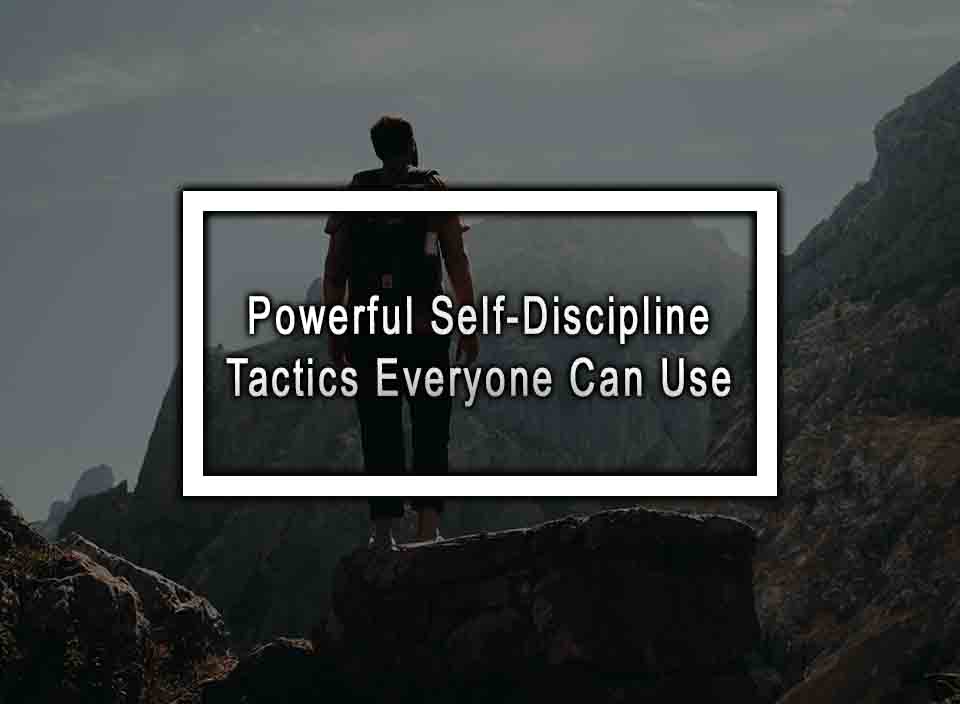Table of Contents
ToggleGaining the Reigns: How to Master Self-Discipline
Circumventing chocolates, resisting the snooze button, or abstaining from internet rabbitholes – these aren’t simple showdowns! Struggles with self-discipline are common and universal. But achieving your ambitions calls for a significant ‘D’ word – Discipline! Come along as we share tips on mastering your ability to hold yourself accountable, stay motivated and focused, despite distractions. So brew your coffee, get cozy and dive into our list of 10 powerful self-discipline tactics everyone can use and can lead to successful results.
1. Set Clear Goals & Deadlines
First things first, document your ambitions. Attach a realistic deadline to every goal. This way, you have a concrete vision to pursue and a timeline to adhere.
2. Break Things Down into Manageable Chunks
Large tasks can feel daunting. By breaking them into manageable chunks, you’ll be less frightened to get started and more inclined to remain disciplined till the end.
3. Find your “WHY”
Connect your task to a meaningful outcome or aim. You’re more likely to be disciplined when you comprehend the bigger picture.
4. Create a Routine
Consistent schedules streamline your day reducing decision-making fatigue and boosting discipline.
5. Get Enough Rest
A well-rested mind and body are essential to stay motivated and disciplined. Ensure enough sleep and regular breaks during your workday.
6. Use Technology Wisely
Use technology to aid your self-discipline journey. There are various apps designed to keep distractions at bay and boost productivity.
7. Implement Temptation Bundling
Pair an activity you love (like listening to a podcast) with an activity you need discipline for (like doing chores). This simple trick often results in increased task performance.
8. Practice Delayed Gratification
Resisting immediate gratification can improve your overall self-control and discipline. Reward yourself once you’ve completed a task, not before.
9. Surround Yourself with Positivity
Environments and people you hang out with can impact your discipline. Surround yourself with self-driven individuals and a clutter-free setting to boost your self-discipline.
10. Seek Professional Guidance
Sometimes a third eye can do wonders. If you’re struggling with sticking to a disciplined routine, consider seeking professional help.
Conclusion
And there you have it! 10 proven self-discipline tactics that everyone can use and get on the train to productivity, focus, and success. Remember, self-discipline is not just about restriction; it’s also about liberating yourself from repeated patterns that no longer serve you. So get disciplined about disciplining yourself, and watch yourself soar to unprecedented heights! Here’s to harnessing willpower and gaining the reins of life!
Self-Discipline FAQ
Here are the most common questions about self-discipline.
1. Why is self-discipline important?
Self-discipline is important because it helps individuals stay focused, motivated, and consistent in their efforts to achieve desired outcomes. It also provides the ability to resist temptations and overcome obstacles that may hinder progress.
2. How can I improve my self-discipline?
Some strategies to improve self-discipline include setting clear goals, developing a routine, breaking tasks into smaller, manageable parts, rewarding yourself for accomplishments, practicing mindfulness and self-awareness, and seeking support from others.
3. How long does it take to develop self-discipline?
The time required to develop self-discipline varies from person to person. It depends on factors such as motivation, commitment, previous habits, and individual circumstances. Consistent practice and dedication are typically necessary for long-lasting self-discipline.
4. What are the benefits of self-discipline?
The benefits of self-discipline include increased productivity, improved time management, enhanced focus and concentration, greater self-control, and increased confidence and self-esteem. It also helps in creating healthy habits, achieving personal and professional goals, and overcoming procrastination.
5. Are there any potential downsides to having too much self-discipline?
While self-discipline is generally seen as a positive trait, having too much of it can lead to rigidity and perfectionism. It may also cause excessive stress and burnout if one constantly pushes themselves beyond their limits. It is important to find a balance between discipline and self-care.












